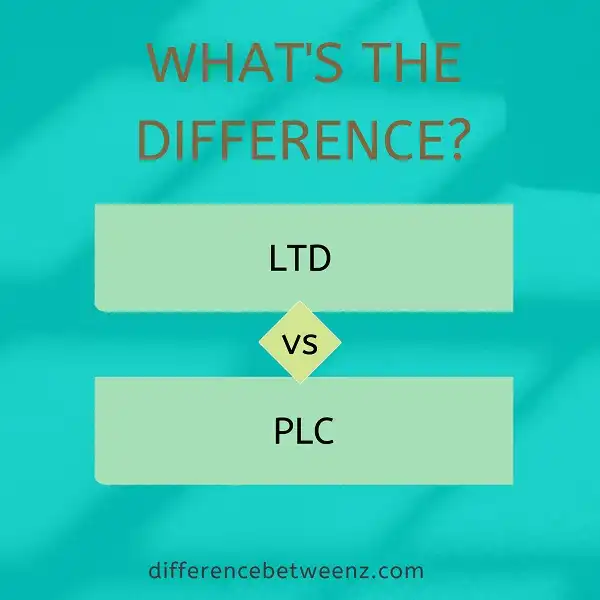Both LTD (limited liability company) and PLC (public limited company) are types of companies that offer certain benefits to their owners. However, there are some key differences between the two that you should be aware of before deciding which is best for you. Here we will take a look at some of these key differences, so you can make an informed decision about which type of company is right for you.
What is LTD?
LTD is a business structure used by limited liability companies. LTDs are popular among small businesses and entrepreneurs because they offer protection from personal liability for business debts and liabilities. LTDs are similar to other business structures, such as sole proprietorships and partnerships, in that they allow for multiple owners and easy transfer of ownership.
However, LTDs differ from these structures in that they offer limited liability for the owners. This means that if the LTD company is sued or goes bankrupt, the owners will not be personally liable for the debts of the company. LTD companies are regulated by state law, so it is important to check with your state’s secretary of state to see if an LTD company is right for your business.
What is PLC?
A PLC company is a business organization that offers its shares to the public through an initial public offering (IPO) and is then listed on a stock exchange. PLC companies are usually large businesses with a diverse range of products or services. PLCs may be created when a private company decides to list its shares on a stock exchange in order to raise capital. PLCs must meet certain criteria in order to be listed on a stock exchange, such as having a minimum number of shareholders and being incorporated in the country where the exchange is located.
PLCs are subject to different regulations than private companies, and their shares can be bought and sold by members of the public. PLCs typically have a board of directors and share price that fluctuates according to supply and demand. PLC companies are found in many countries around the world, and their shares are traded on major stock exchanges.
Difference between LTD and PLC
LTD and PLCs are both types of businesses, but they differ in a few key ways. LTD, or limited liability companies, offer their owners limited personal liability in the event that the business is sued. This means that if the business owes money to creditors, the LTD owners will not have to use their personal assets to pay off the debt. PLCs, or public limited companies, are businesses that are owned by shareholders.
PLCs must be registered with the government and must make their financial information public. As a result, PLCs are subject to more stringent regulations than LTDs. However, PLCs also have the advantage of being able to raise capital by selling shares to investors. Ultimately, LTDs and PLCs both have their own advantages and disadvantages, so it is important to choose the right type of business for your needs.
Conclusion
The difference between LTDs and PLCs is an important distinction to make when choosing a company structure. Both have their own set of benefits and drawbacks, so it’s important to understand the differences before making a decision. If you need help deciding which type of company is right for you, our team can provide guidance. Thanks for reading!


